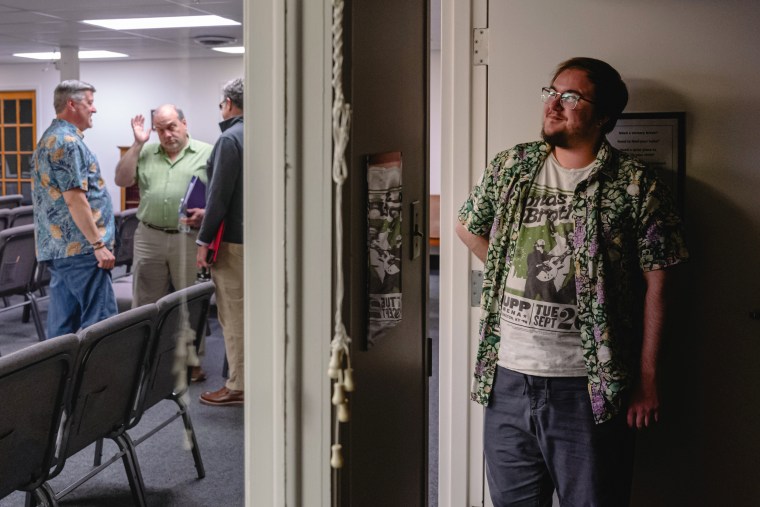Oliver Bertasio loves to sing. He long dreamed of a career in the arts. But, struggling with insecurity, he stayed largely behind the scenes, even while taking theater classes in college.
The Massachusetts native could not have imagined that he would find his voice in Kentucky.
Looking back, Bertasio, now 33, sees that the insecurity came from not understanding his gender identity. It wasn’t until he accepted himself as a transgender man and transitioned while living in New York eight years ago that he felt comfortable in his own skin. But after moving to Lexington about two years ago and finding a welcoming community that embraced him, he found the courage to step onto the stage — joining a church choir and performing with a local theater company.
“I’ve never felt more at home than I do in Lexington,” said Bertasio, who works at a bank where even customers have been uniformly kind — including those who appear to be conservative.
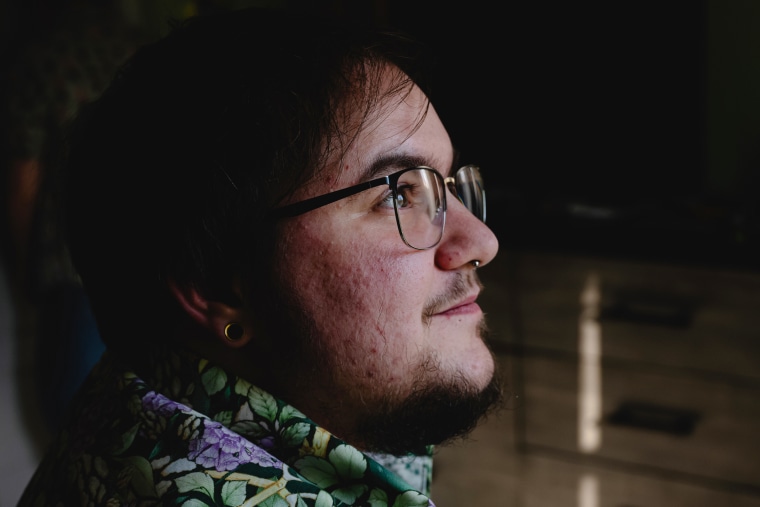
In making the move from the Northeast to the South, Bertasio appears to be bucking the trend of transgender Americans who are leaving Republican-led and Southern states as anti-trans vitriol and legislation has escalated in recent years. In the 2022 U.S. Trans Survey, 41% of the more than 90,000 respondents lived in the South. Nearly half of all respondents said they had considered moving to another state because anti-trans legislation had been considered or passed, with 5% actually doing so.
The top 10 states from which survey respondents moved are Alabama, Arizona, Florida, Georgia, Missouri, North Carolina, Ohio, Tennessee, Texas and Virginia.
“You have to calculate your own risk and decide whether it’s a risk you want to take,” Bertasio said of living in a state where legislators are actively targeting transgender rights. For Bertasio, finding joy and a sense of community he never really had before was completely unexpected — and worth the move.
“At the end of the day, finding community and purpose” is what everybody wants, he said.
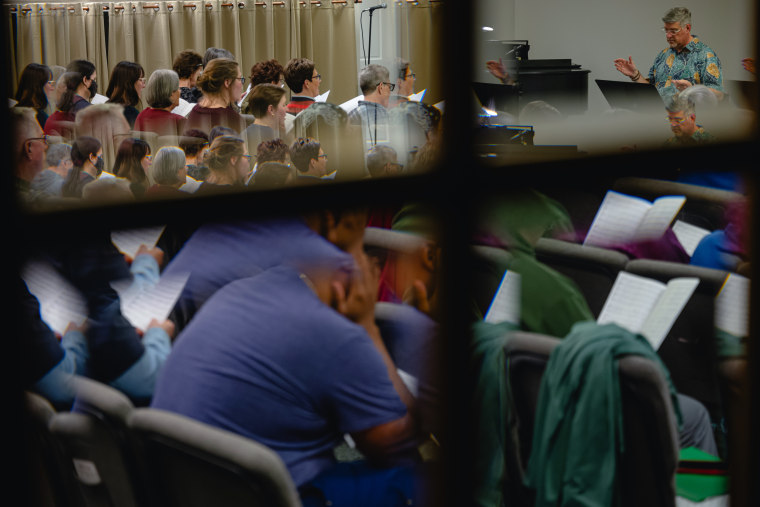
Transgender people have always existed, even in the very places where politicians are doing the most to strip them of their civil rights, said author, activist and historian Samantha Rosenthal.
Rosenthal, a history professor at Roanoke College in Virginia and author of “Living Queer history: Remembrance and Belonging in a Southern City,” said that while it’s widely known LGBTQ people have migrated over time to big cities like New York, San Francisco and Washington, D.C., Southern migration has often found queer people from rural and very small communities moving to cities like Charlotte, North Carolina; Roanoke, Virginia; and Atlanta. As that Southern migration occurred, she added, services and resources built up to meet increased demand, neighborhoods were built, and LGBTQ communities thrived.
“Most Southern cities of 100,000 people or more — so not that big — have these gay enclaves,” she said. “It’s a rich, vibrant queer world here.”
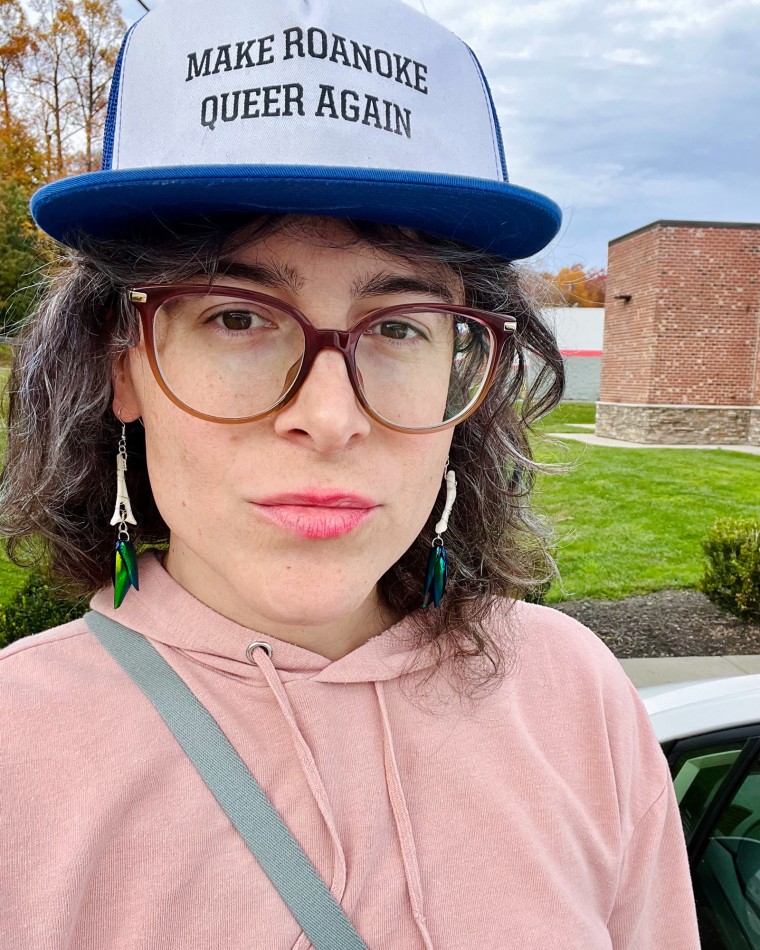
Rosenthal, who grew up in upstate New York and spent most of her 20s living in New York City, migrated south herself, moving from Brooklyn, New York, to Virginia in 2015. Assigned male at birth, Rosenthal, now 41, had come out as a queer man about a year before moving to the South. But in recording the stories of trans women throughout Virginia, particularly those a generation older than her, she realized she was hearing experiences like her own and has since come out as transgender. Many of the stories she recorded can be found on the site she co-founded in 2015, the Southwest Virginia LGBTQ+ history Project.
While her experiences in Roanoke are often very different from those of the LGBTQ people who have lived there all their lives, especially Black queer and trans women, Rosenthal said she only truly discovered who she is once she moved there.
“I’ve experienced a kind of homecoming, even though it’s not where I grew up,” she said.
For every step forward marginalized communities make in securing civil rights, there is backlash, said Rosenthal. She said she and other historians believe the current “very intense” backlash began after the U.S. Supreme Court legalized same-sex marriage in 2015.
Last year, more than 500 state bills targeting LGBTQ people were introduced in state legislatures across the U.S., according to a tally by the American Civil Liberties Union. Of those bills, 75 became law, according to an NBC News analysis of the ACLU’s data. In just the first three months of this year, the ACLU is tracking more than 470 such state bills, with proposed legislation including restrictions on bathroom access for transgender people of all ages, bans on gender-affirming health care for trans youth and prohibitions on trans people changing the gender marker on their state-issued IDs.
“The intent of these policies is clear: to harass and intimidate transgender people back into the closet, to drive people from public society — and the consequences are devastating,” said Brandon Wolf, the national press secretary for the Human Rights Campaign, the country’s largest LGBTQ rights group.
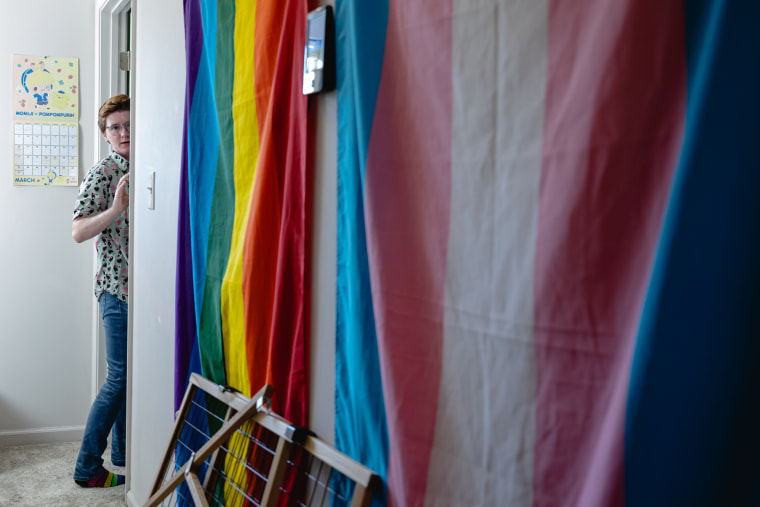
North Carolina is among the states where bills targeting the LGBTQ community — and particularly the trans community — have been the most plentiful. Last year, state legislators there proposed 11 such bills, and five of them, including one that bans gender-affirming care for minors, passed into law, according to the ACLU’s tally. So far this year, there are six bills under consideration in the state, including a religious exemption proposal that would allow medical providers, health care institutions and insurers to refuse to provide “or pay for any health care service that violates his, her, or its conscience.”
North Carolina Lt. Gov. Mark Robinson, the state’s Republican candidate for governor, made national headlines during a February campaign speech when he said transgender women should be arrested if they use the women’s bathroom, adding that people who “are confused” about their gender should “find a corner outside somewhere to go” to the bathroom.
But for 37-year-old Basil Vaughn Soper, who identifies as a man of trans experience from the South, North Carolina is where he belongs. For Soper, moving back to Asheville — to the slower pace, the familiar foods, dog walks in the shadow of the Blue Ridge Mountains, being closer to his sister and her children — has brought him full circle. He had not anticipated when he moved back from New York City that he would soon be awash in the deeply rooted emotions of being home.
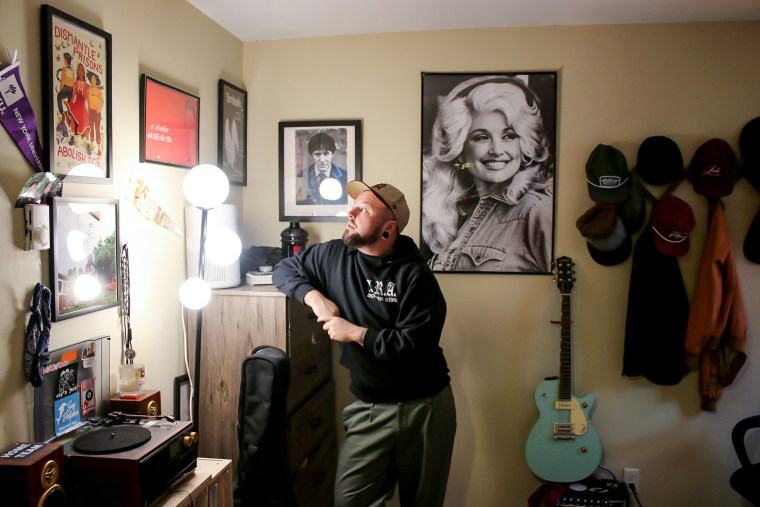
“I was really able to sit back and see everything I have done, to know that I am safe and that I have my loved ones nearby,” Soper said. “It was really an emotional thing, and I didn’t expect it to be.”
Asheville had been a refuge, the place where he found safety and a community of friends four years after fleeing abuse in his parents’ South Carolina home when he was 16. He was 20 when he arrived in Asheville, still trying to understand why his outward appearance bore no relationship to the confusing feelings he had about who he was and his place in the world. It was at a gender workshop at a local Universalist Church that he first heard the language that gave voice to everything he had been feeling.
Unable to easily access the full range of gender-affirming health care, Soper left North Carolina, ultimately settling in New York, where he was able to medically transition. But when his job afforded an opportunity to return to the South, he decided to go home.
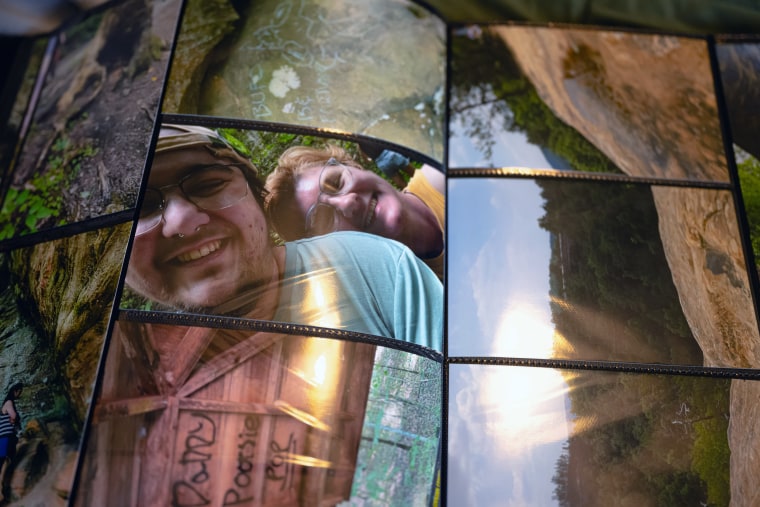
Transphobia and bigotry are not exclusive to Republican-led states or cities, said Soper, founder of Transilient, a documentary project to record transgender and nonbinary people sharing their experiences of day-to-day life. He said the way it’s expressed may be different, but the hurt it causes is not — GOP-led attacks on transgender rights notwithstanding. He added that he has experienced transphobia in liberal and conservative states while traveling for Transilient and while living in Democratic-led cities in the North.
“Transphobia is deeply embedded in our culture overall,” he said. “It just comes out and looks very different depending on the level of education you have around trans people and the kind of information you’re getting about us. It really depends on how people are educating themselves, and even if you’re super educated about trans people, you still have to dismantle the transphobic ideas within yourself.”
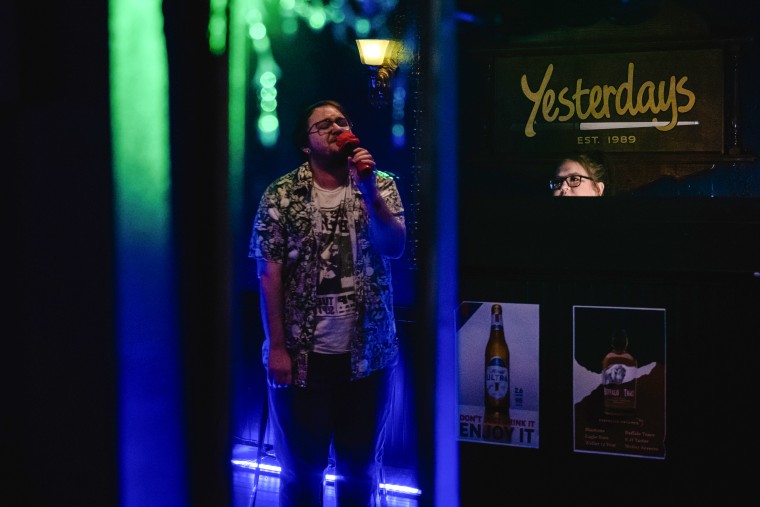
Ultimately, regardless of gender identity, people often find themselves living joyful lives and participating in civil society in cities and states where they never anticipated ending up. The opportunity to do so is supposed to extend to all Americans, including LGBTQ people, said Soper, Rosenthal and Bertasio.
“I have just as much right to love the state of Kentucky as anybody else does,” Bertasio said.
For more from NBC Out, sign up for our weekly newsletter.
